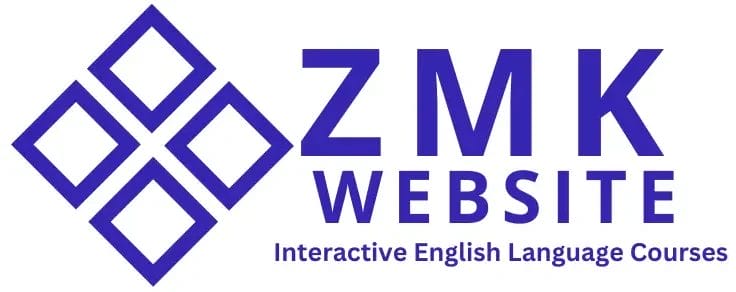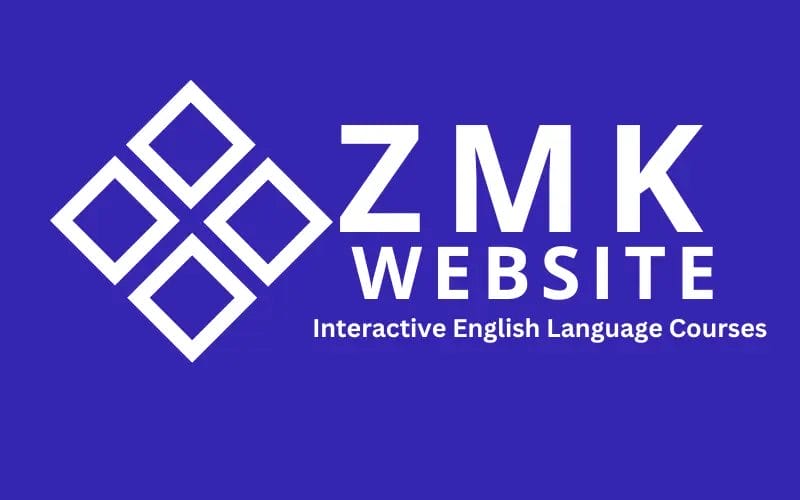Unlock 2 -Unit 1 – Places – RW – Vocabulary 1 ( Part 1 )

Activity Name: Picture-Based Word Description
Objective:
Students will improve their speaking skills and vocabulary by describing words using pictures.
Procedure:
- The teacher shares this page link to the students.
- The teacher divides the class into small groups.
- Students discuss the pictures in their groups.
- One student from each group comes to the front of the class.
- The teacher selects one word and asks the student to describe the picture.
- The student describes the word using the picture.
- Other students listen carefully.
- After completing this activity, the teacher asks the students to complete the quizzes next the pictures.
Assessment:
- The teacher checks students’ speaking skills, confidence, and correct use of vocabulary.
Outcome:
Students will be able to describe words confidently using pictures.
Below are the words, their meanings, and related pictures.
Destination
Destination : (n) : the place where someone or something is going.
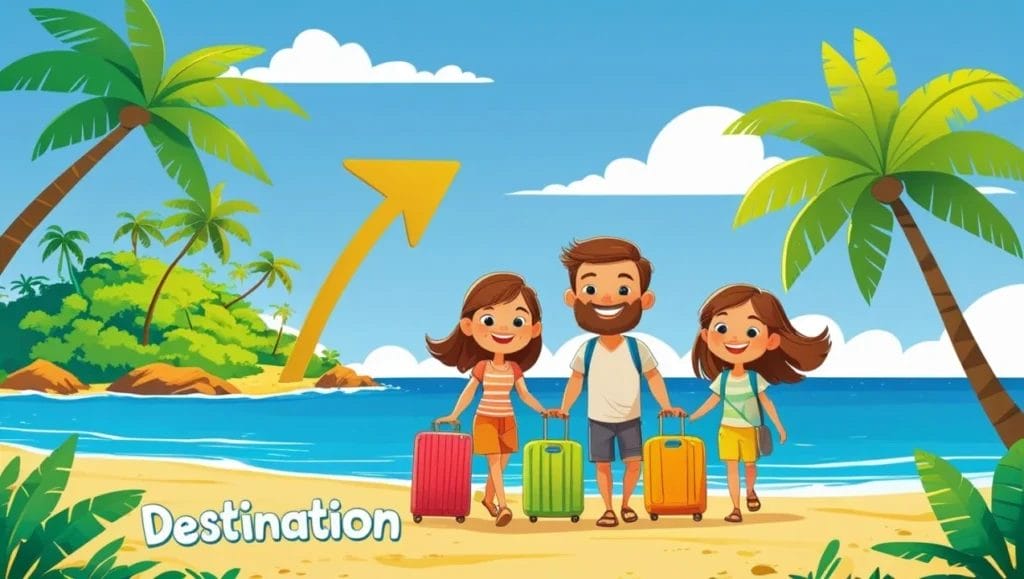
Harbour
Harbour : (n) : an area of water by the coast used to keep ships safe.
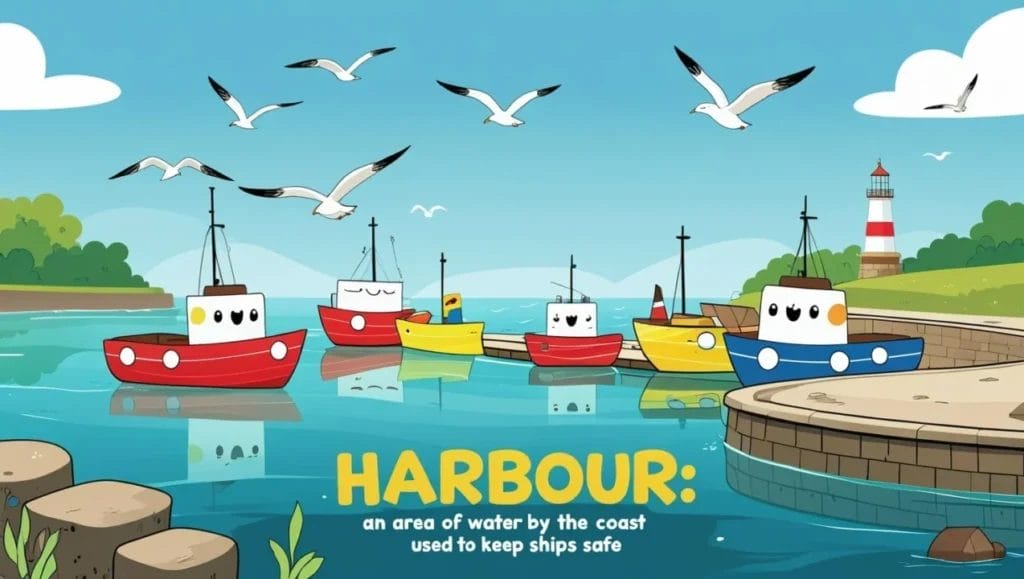
Tower
Tower : (n): a very tall, thin building, or part of a building.
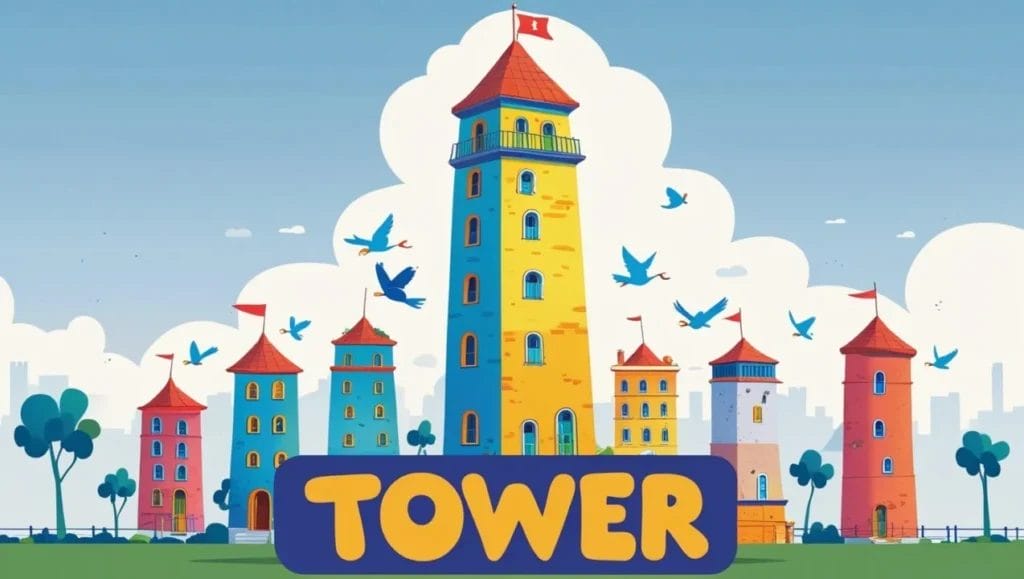
Monument
Monument : (n) : a special building to make people remember an event in history or a famous person.
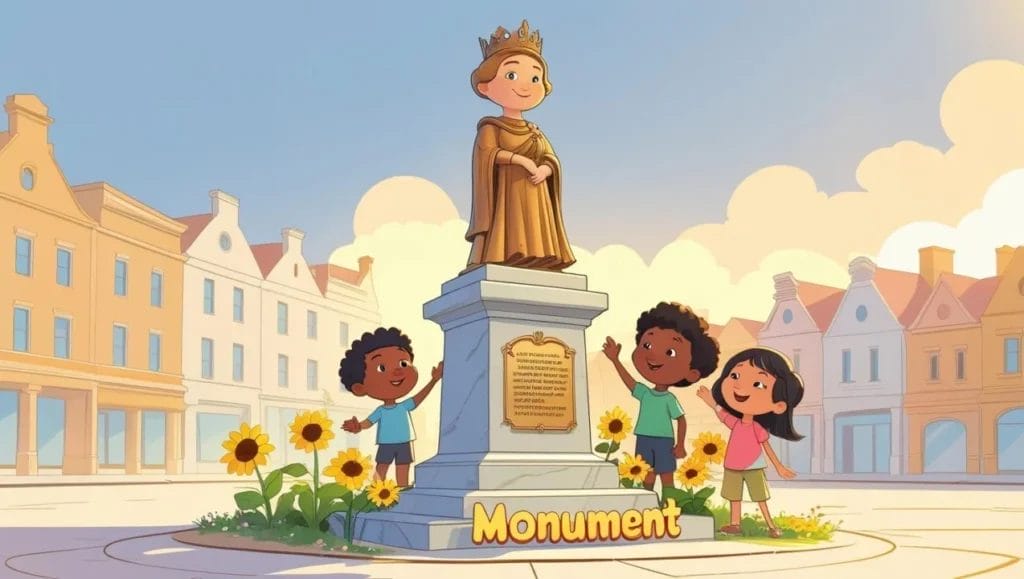
Goods
Goods :(n) : things that people sell.
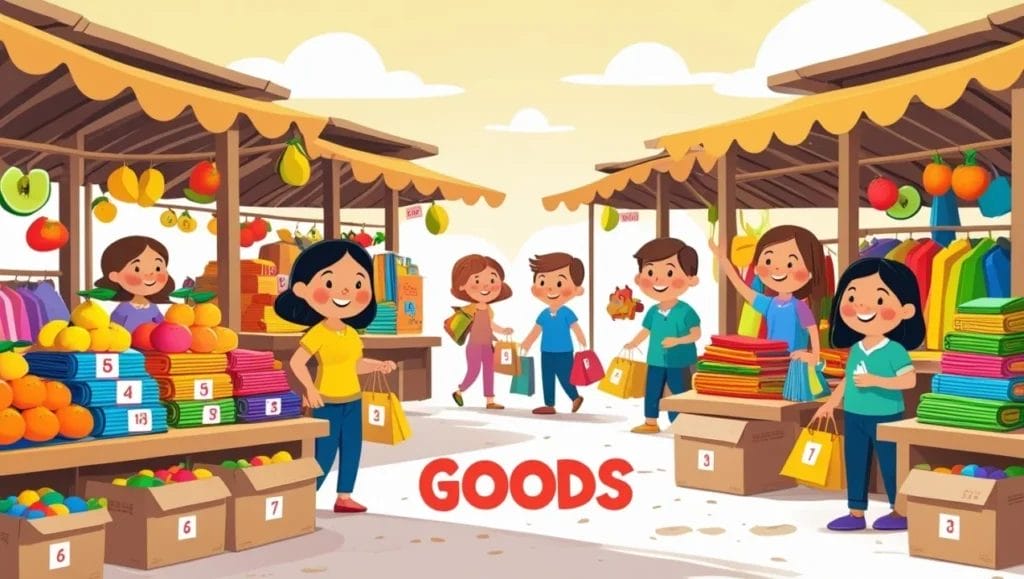
Fireworks
Fireworks : (n) : small objects that explode to make a loud noise and bright colours in the night sky.
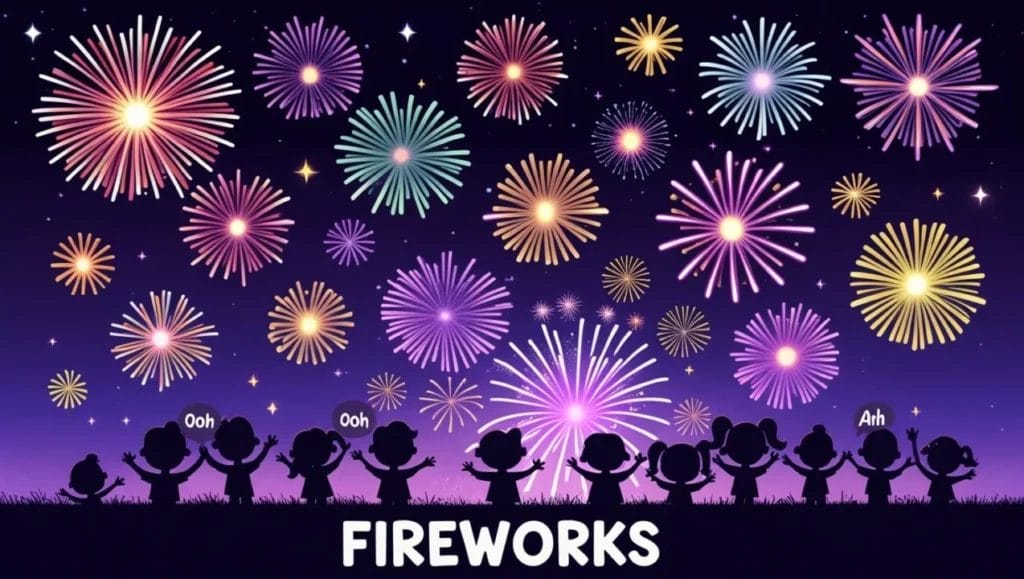
Interactive Vocabulary Learning
Vocabulary Word List
Review the words, meanings, and examples below before starting the activities.
Destination
NounThe place where somebody or something is going.
- Our destination is Paris, where we will visit the Eiffel Tower.
- The train arrived at its final destination after a long journey.
- She set her destination on the GPS before starting the road trip.
Real World Use Case: 🔗 Destination on Youglish
Harbour
NounAn area of water by the coast used to keep ships safe.
- The fishing boats returned to the harbour before the storm arrived.
- Sydney Harbour is one of the most beautiful harbours in the world.
- Ships anchor in the harbour to protect them from rough ocean waves.
Real World Use Case: 🔗 Harbour on Youglish
Tower
NounA very tall, thin building or part of a building.
- The clock tower in the city center can be seen from miles away.
- They climbed to the top of the tower to get a better view.
- The ancient castle had four towers at each corner.
Real World Use Case: 🔗 Tower on Youglish
Monument
NounA special building to make people remember an event in history or a famous person.
- The monument was built to honor soldiers who fought in the war.
- We visited the Washington Monument during our trip to the capital.
- The city erected a monument to remember the founding fathers.
Real World Use Case: 🔗 Monument on Youglish
Goods
NounThings that people sell.
- The store sells various goods including clothes, toys, and electronics.
- Trucks deliver goods from the factory to shops across the country.
- Many people buy goods online instead of going to physical stores.
Real World Use Case: 🔗 Goods on Youglish
Fireworks
NounSmall objects which explode to make a loud noise and bright colours in the night sky.
- We watched the spectacular fireworks display on New Year’s Eve.
- The fireworks lit up the sky with red, blue, and gold colors.
- Children were excited to see the fireworks at the celebration.
Real World Use Case: 🔗 Fireworks on Youglish
Click Here for Part 2
The words in the following presentation are from a book called “Unlock 2” – Reading and Writing book. They’re part of unit 1, which is all about Places. And guess what? It’s the very first set of vocabulary you’ll encounter. So, get ready to expand your word bank!
Unlock 2 – Unit 1 – R & W – Vocabulary 1.pptx by Zahid KhanHere are some engaging vocabulary activities related to the words mentioned above. These activities will reinforce the vocabulary you’ve just taught your students.
Matching – Vocabulary Quiz
In this activity, the students will match the words with their respective definitions.
Word Search – Find the hidden words in a letter Grid
In this activity, the students will search for the words that the teacher has taught. The words are hidden in a letter grid.
Spin the Wheel – Find the word
In this game, the teacher will spin a wheel, and eventually, it will stop. When the wheel stops, the students will see the meaning of a specific word. Then, the teacher will ask one of the students to guess the word by carefully reading its definition. The teacher may ask the student to make a sentence for the word.
Unscramble the word or phrase – Vocabulary Quiz
In this activity, the students will move the letters around to put them in the right order and reveal a word or phrase. All these words are connected to the above vocabulary.
Open the box
In this fun activity, the teacher will choose one of the students to participate. First, that student will pick a number. Then, the teacher will click on the chosen number. What happens next? Well, the student will see the meaning of a word—a word related to the vocabulary the teacher has taught in class. Now comes the exciting part: the student needs to read the meaning and guess the word! If the guess is correct, the teacher might even ask the student to create a sentence using that word.
